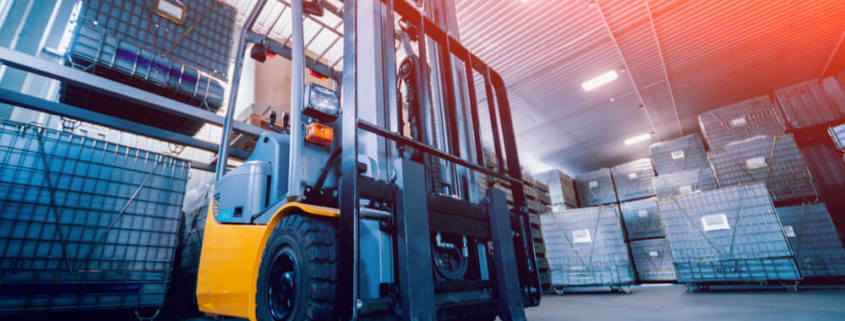The Dangers of Forklift Accidents in the Workplace
Forklifts are a regular fixture in warehouses, distribution centers, manufacturing plants, dockyards, construction sites, and other industrial settings. These machines are very helpful in many work settings, allowing workers to more easily move large and heavy loads and accomplish difficult tasks that would have previously required several employees to complete. But just like any powerful piece of equipment, forklifts can be hazardous if something goes wrong with them in the workplace, potentially causing serious and sometimes fatal injuries.
When a worker gets injured in a forklift accident, it can be a serious disruption to their life. Workplace injuries create a lot of uncertainty about the future. How will the medical bills be paid? How will I be able to put food on the table when I am out of work? How long will it be until things returned to normal? Will we ever be able to get back to normal after this injury?
If you or someone you care about suffered an injury in a forklift accident at work, it is very important for you to know your legal rights. Workers’ compensation may or may not cover your injury (depending on whether your employer has coverage), but even if it does, benefits are limited, and this can leave injured workers and their families in a significant financial hole.
The good news is that in many cases, it may be possible to recover damages over and above what might be available through workers’ comp. And this is why it is always advisable to speak with a seasoned workplace injury lawyer as soon as possible, so you can find out where you stand. If your injury occurred in Georgia, call Bailey, Javins, and Carter L.C. 678-981-5370 for a free consultation and case evaluation.
Forklift Dangers in the Workplace
The size and design of forklifts present certain hazards to those who operate them and others who come near them:
- Weight: Forklifts are extremely heavy, and many models weigh in excess of 9,000 pounds. This is about three times as heavy as a typical passenger vehicle. In addition, the weight of a forklift is unevenly distributed, making it more difficult to operate this type of machinery.
- Speed: Forklifts can move pretty quickly. Standard models usually have a maximum speed of around 20 mph (although they could be made to go faster but speeds are limited for safety). 20 mph would be considered slow out on the open road, but in a more enclosed industrial setting with significant pedestrian traffic, this is a pretty fast speed.
- Braking: Forklifts are more difficult to stop than an automobile, because they only have one set of brakes. Automobiles have brakes in both the front and the back of the vehicle, but forklifts only have them in the front.
- Rear-Wheel Control: In a forklift, the rear wheels control the turning of the vehicle. This increases the likelihood of the machinery turning over when it is making a difficult turn.
- Heavy Lifting: As we talked about earlier, forklifts are very useful for lifting heavy materials, and they are often used to stack these materials in high places. With this kind of work, operators must be very careful to prevent objects from falling and injuring those nearby.
Forklifts are used regularly and experience a lot of wear and tear, and because of the inherent dangers that come with using this type of equipment, it is very important to regularly inspect and maintain them. Failure to perform proper maintenance (on a forklift) can result in a number of different problems, including:
- Worn out breaks that fail to stop.
- Worn out tires that blowout and lead to a forklift accident.
- Electrical problems – often caused by corrosion.
- Steering problems – which can be caused by worn-out gears or low steering fluid.
- Engines overheating because of a broken or blocked radiator.
- Problems with the hydraulic system, making the forklift unable to lift properly.
In addition to negligent maintenance, problems with forklift operation may also be caused by defective or dangerous machinery or parts. When this is the case, the product designer, manufacturer, and/or distributor may be the one responsible for the forklift-related injury.
Contact the Experienced Workplace Injury Lawyers at Bailey, Javins, and Carter L.C.
For strong legal guidance with forklift accident injuries and all other types of workplace injuries in Atlanta or anywhere in Georgia, call Bailey, Javins, and Carter L.C. at 678-981-5370 or send us an online message. For over five decades, we have been standing up for the legal rights of working people, and we are ready to go to work for you. Contact us today to get started on your claim.

 Forklift Accidents
Forklift Accidents
 Common On-the-Job Neck Injuries
Common On-the-Job Neck Injuries Who is Liable for Workplace Explosion Accidents
Who is Liable for Workplace Explosion Accidents